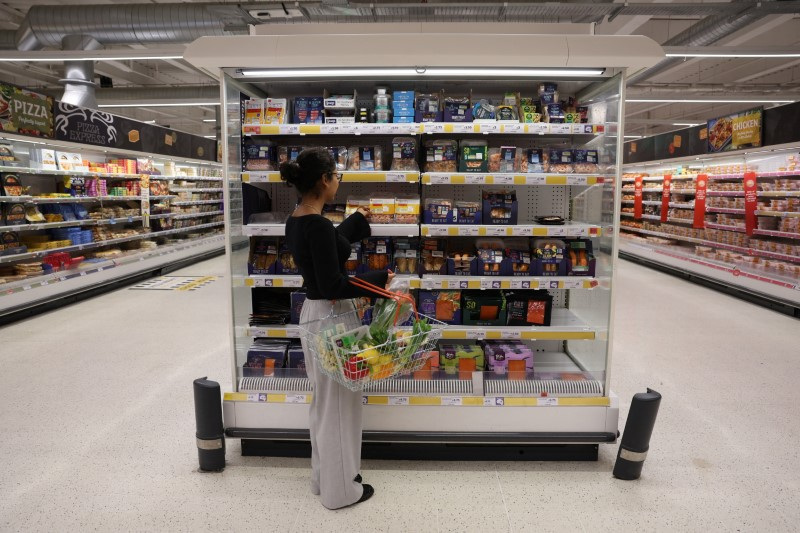By David Milliken
LONDON (Reuters) – British retail sales edged up in July, boosted in part by extra sales due to the men’s Euros soccer championship, official figures showed on Friday, after an unusually cool and wet June depressed spending and weighed on broader economic growth.
Retail sales volumes in July were 0.5% higher than a month before and 1.4% higher than in July 2023, the Office for National Statistics said. Both rises were in line with forecasts from economists polled by Reuters.
“Retail sales grew in July led by increases in department stores and sports equipment shops with both the Euros and discounting across many stores boosting sales,” Liz McKeown, the ONS’ director of economic statistics, said.
The squeeze on British consumers from high inflation in 2022 and 2023 is beginning to ease. Inflation was back at its 2% target in May and June, and only slightly above that in July, while wage growth exceeded inflation by the highest margin since mid-2021 in the second quarter of the year.
Compared with February 2020, the last month before COVID-19 lockdowns started, sales volumes are still 0.8% lower.
The Bank of England this month made a first cut to interest rates from their 16-year high.
Britain’s longest-running consumer confidence measure rose to its highest in nearly three years last month as shoppers said their finances had improved and they were more willing to make big purchases.
However, recent reports from UK retailers have been mixed. Clothing retailer Next reported better-than-expected second-quarter sales and raised its full-year profit outlook.

By contrast, luxury brand Burberry warned on profit and other UK retailers have highlighted continuing low consumer confidence around more discretionary purchases.
Sales volumes at clothing stores fell 0.6% in July and were 4.0% lower than a year earlier, the ONS said. (This story has been refiled to remove the extraneous word ‘and’ in paragraph 1)